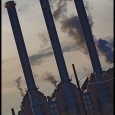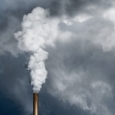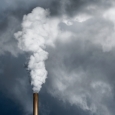Environmental Protection
Commentary
Cry Wolf Quotes
We remain completely committed to the idea that we have a responsibility to make the environment of our state and world better. We’re not going to do it by participating in gimmicky programs that don’t work.
I feel that the sponsors and endorsers of Bill 270 have been "taken in" by the spurious and irresponsible claims of its drafters. I very much fear that those drafters are motivated by a "zero-risk" philosophy which is impossible to achieve….Not only is it unnecessary, but attempting to achieve "zero-risk" can destroy business and commerce.
It is a bad bill based on undemonstrated premises. It will accomplish nothing constructive in Public Health value, but rather will do a great deal of harm to the City’s business and commerce, and most importantly, its economy.
The moment you get either people or lawyers apprised of the fact that a company has a toxic material on their premises, they’re going to bring a lawsuit.
Related Laws and Rules
- American Clean Energy and Security Act
- American Power Act of 2010
- Clean Air Act
- Clean Air Act of 1970
- Clean Air Act of 1977
- Clean Air Act of 1990
- Clean Energy Jobs and American Power Act
- Clean Water Act
- Emergency Planning and Community Right-to-Know Act of 1986
- Environmental Protection Agency
- New Jersey Worker and Community Right-To-Know Act
- Philadelphia Worker and Community Right-to-Know Act
Evidence
-
Blind Spot: The Big Three's Attack on the Global Warming Treaty
eleased during the controversy over the Kyoto Treaty, this study is a serious policy paper, exploring the intersections between transit policy and global warming. It fairly establishes the Big Three have as long history of stubborn obstructionism. (They don't like anyone telling them what to do.)
-
Reducing Carcinogens in Public Schools: A non-regulatory approach by a regulatory agency
Using the New Jersey Right to Know law, advocates were able to find 318 public school districts in their state that used or held a list of 10 known carcinogens, including arsenic, benezene, vinyl chloride, and lead chromate. The study documents how these substances are used and who is exposed to them. The authors then show that the schools disposed of the toxics, or used them all up and did not order replacements.
-
EPA: “Benefits and Costs of the Clean Air Act: Second Prospective Study—1990-2020”
Clean Air Act benefits total more than $2 trillion.
-
The Going-Out-Of-Business Myth
OMB Watch debunks the cry wolf claims made against specific regulations, in chart form.
-
Jobs vs. The Environment: An Industry-Level Study
Four industries that operate under intense environmental regulatory scrutiny, but haven't lost jobs as a result.
Resources
Political Economy Research Institute is a think tank focused on a variety of subjects such as diverse financial regulation, living wages and environmental protection.
Green for All is a leading environmental oranization focused on creating green jobs for low-income communities and people of color.
The Sierra Club is America’s oldest (founded in 1892), and largest, environmental non-profit.





